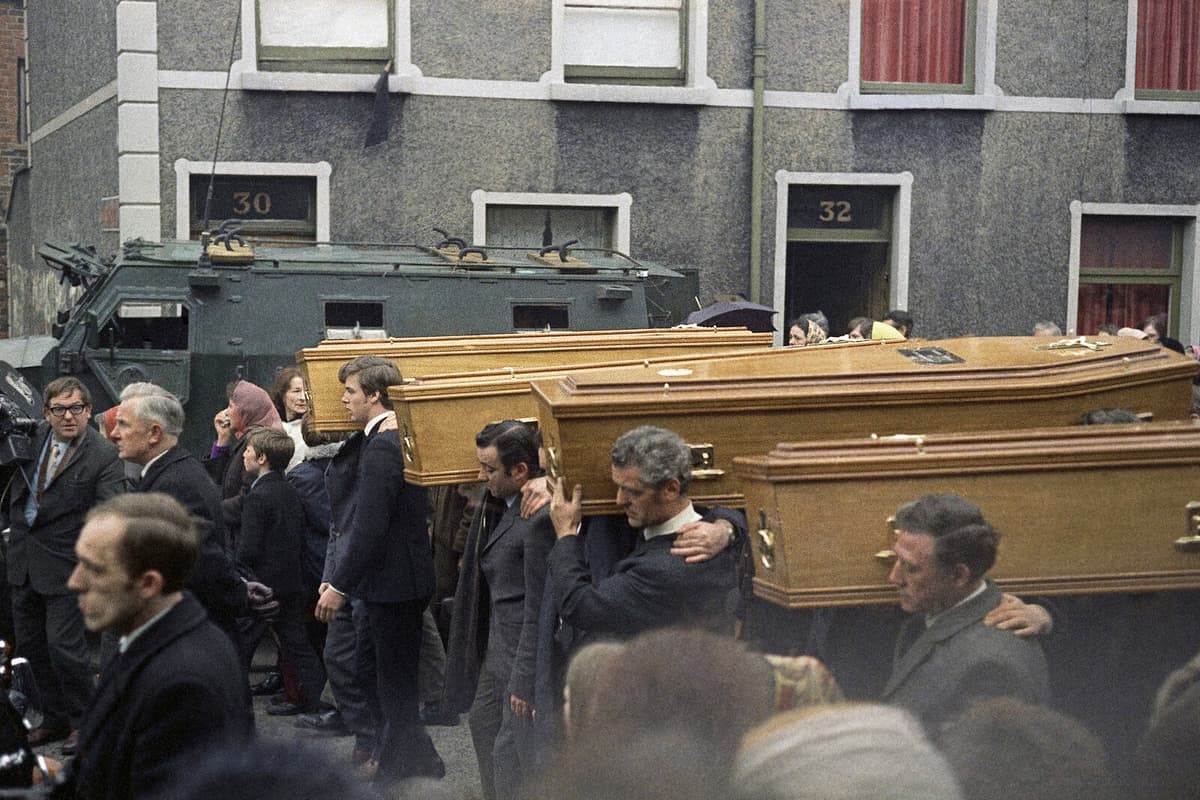A former British paratrooper known as "Soldier F" is being prosecuted for two murders and five attempted murders.
This is in connection with a civil rights demonstration in Londonderry (Derry) on January 30, 1972, when British soldiers fired at participants in the predominantly Catholic area of Bogside.
14 people died in the massacre.
"Waited 53 years for justice"
The conflict, which is called "the troubles" in English, lasted for three decades, with 3,500 dead and ended with the peace agreement in 1998. "Bloody Sunday" gave new fuel to support for the provisional IRA and the case still evokes strong emotions in Northern Ireland today.
Relatives of the victims gathered outside the court with portraits of the dead. John McKinney, brother of William McKinney, called it "a significant day in our fight for justice for our loved ones".
Tony Doherty, whose father Patrick was killed, said that the families have waited 53 years for justice.
Everyone was acquitted
The prosecutor proposed charges against Soldier F as early as 2019. A quick investigation in 1972 acquitted the soldiers, but it was considered by many Catholics as a cover-up.
After the peace agreement in 1998, the major Saville investigation was launched, which in 2010 established that the victims did not pose any threat. Then-Prime Minister David Cameron apologized. The police then opened a murder investigation and submitted material in 2016, but the case has been delayed and further prosecutions are unlikely as witnesses have died.
The 2023 "Legacy Act" effectively stopped further prosecutions, but the British Northern Ireland Minister Hilary Benn is now working to repeal the law.
In November 2022, the former soldier David Holden was sentenced to three years' probation for the manslaughter of Aidan McAnespie in 1988 - the first conviction for a "troubles" killing since the 1998 agreement.
Corrected: In an earlier version, an incorrect description of the massacre occurred.






